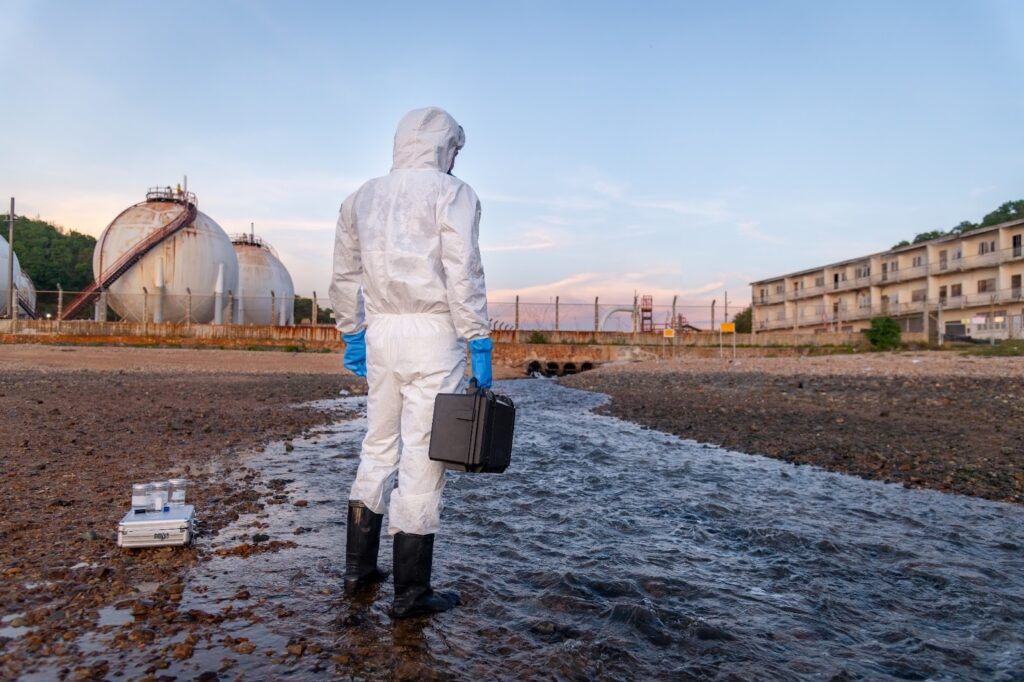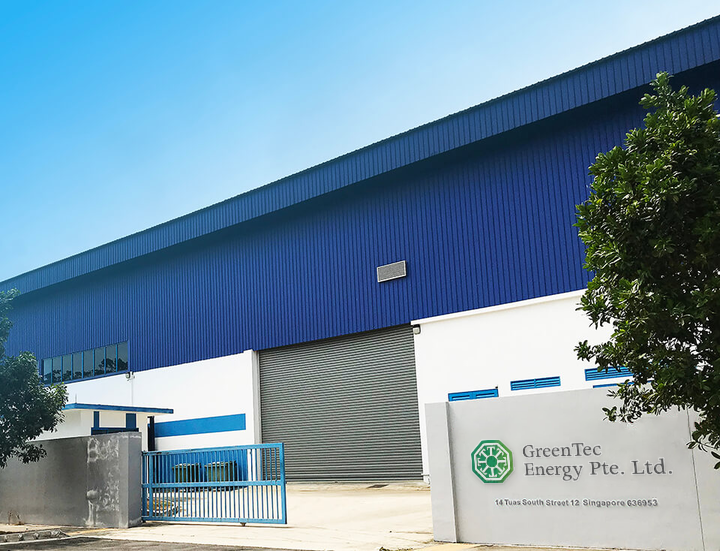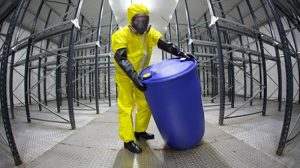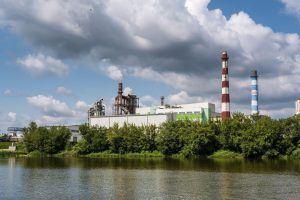Chemical Waste Management: What You Need To Know
February 6, 2024

Industrial processing plays an important role in development. That’s where we get food, beverages, pharmaceuticals, chemicals and pretty much everything from. However, irresponsible practices can lead to the disposal of harmful waste into our environment.
This can result in pollution and ecological consequences that have and will continue to plague the world. That's why chemical waste management is more important than ever.
While it may not be the solution to everything, it certainly serves as a crucial step to mitigating these issues. Here’s everything you need to know about chemical waste management:
Understanding Chemical Waste
Chemical waste encompasses a wide range of discarded materials. These materials may contain substances that are harmful to the environment and our well being.
From laboratories and manufacturing facilities to healthcare institutions, various sources contribute to the generation of chemical waste.
Also known as hazardous waste, waste classification can be defined by these characteristics; Ignitability, Toxicity, Corrosivity and Reactivity. Basically anything that poses a threat to our health and surroundings falls under the category of chemical waste.
Importance of Chemical Waste Management
Chemical waste management is the act of safeguarding the environment from hazardous waste disposal. It is the process of collecting, separating, recycling and disposing chemical waste in a responsible manner.
By ensuring the materials are disposed the right way, we prevent releasing toxins that are detrimental to the environment.
If not managed properly, these substances can persist in the environment for years, causing long-term damage to our surroundings and even the economy. Yes, that's right!
Improper disposal can lead to environmental pollution costs, causing a domino effect of economic challenges. This includes legal fines, investor withdrawals, tourist deterrence and a loss of job opportunities.
Challenges in Chemical Waste Management
Despite the importance of chemical waste management, several factors hinder its effective implementation:
- Volume and Diversity of Waste
There are many different kinds of waste, each posing significant challenges. These waste are produced by different industries and finding a one fit all solution is more complex than it seems. Managing this diversity requires specific handling and disposal methods.
- Technology Advancements and Emerging Chemicals
The constant evolution of industries introduces new chemicals and materials, some of which may lack waste management solutions. Staying ahead of technological advancements and addressing these challenges is an ongoing struggle.
- Lack of Awareness and Education
A lack of awareness and understanding about proper chemical waste management is a persistent challenge.
Many businesses and individuals may not be fully informed about the potential harm caused by their actions, leading to unintentional pollution.
- Resource Constraints
Adequate resources, both financial and technological, are essential for effective waste management. Some regions or industries may face constraints in implementing advanced waste treatment technologies. Not to mention the right infrastructure needed for proper chemical waste disposal methods.
- Global Nature of the Issue
Chemical waste management is a global challenge that requires international cooperation. The movement of hazardous waste across borders can lead to "pollution leakage," where waste generated in one region negatively impacts another. Coordinating efforts on a global scale is crucial for comprehensive solutions.
Effective Solutions in Chemical Waste Management
- Reduce and Reuse
The “reduce” and “reuse” policy is a timeless strategy that was introduced back in the 70’s. It’s a great way to reduce the overall generation of chemical waste. By minimising the use of raw materials and reusing products, we can significantly reduce the amount of waste generated. This not only conserves resources but also lessens the environmental impact from chemical waste.
- Advanced Treatment Technologies
Investing in research and development of advanced treatment technologies is essential for effectively managing chemical waste. Innovative methods, such as bioremediation, chemical stabilisation, and thermal treatment, can help neutralise or transform hazardous waste into less harmful substances.
- Strict Regulatory Compliance
Governments need to enforce and strengthen regulations related to chemical waste management. Strict penalties for non-compliance and incentives for environmentally responsible practices can encourage industries to prioritise waste management.
- Public Awareness and Education
Environmental management starts with the public so it’s important to educate the public about proper waste disposal. Education campaigns can target both industries and the general public. This will foster a sense of responsibility, encouraging sustainable practices throughout all levels of society.
Benefits Chemical Waste Management
The benefits of chemical waste management are far reaching. It goes beyond simply addressing environmental corners; it encompasses social, economic and health related advantages as well. This includes:
- Environmental Protection: Proper chemical waste management prevents the release of harmful toxins into the air, water and soil.
- Human Health Preservation: By managing chemical waste responsibly, we minimise the potential health risks associated with exposure to toxic materials.
- Economic Stability: A clean and well-managed environment attracts investments, supports tourism, and ensures the longevity of industries, fostering economic growth.
- Resource Conservation: Implementing the "reduce and reuse" strategy in chemical waste management contributes to the conservation of valuable resources.
Conclusion
With the increased demand for products, proper waste management methods are needed now more than ever. The repercussions of improper disposal are profound, extending to soil, water, and air contamination. This poses threats to all life on earth and the sustainability of ecosystems.
Waste management is no longer a requirement but a holistic approach that needs to be implemented now more than ever. Contact us to find out more!
 GreenTec Energy Pte Ltd (GTE) is a waste management company located in Tuas, Singapore.
GreenTec Energy Pte Ltd (GTE) is a waste management company located in Tuas, Singapore.
Our service includes Industrial waste, Oily waste, Marine waste.
To provide a hassle free solution to our customer is always the key approach and to ensure a win-win situation towards. As a NEA approved environmental company in Singapore, we take all our services seriously and to ensure maximum safety with compliances applied. Every step of our disposal processes are also designed to meet NEA & SCDF requirements, with latest treatment facilities and laboratories to test and treat all incoming waste before disposal.
GTE operates a total land area of about 100,000sqft at 14 Tuas South Street 12 Singapore 636953. With our comprehensive logistics and transportation fleet, we provide prompt and efficient services in transportation of waste to our premises.



